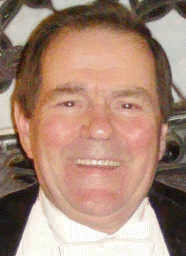Twice in the history of the United States of America, New Orleans played a vital role in helping this country
stay out of the clutches of the British Empire. The first time, it was a Banker from the City named Solomon who
funded George Washington's rag tag Continental army and put boots on their feet, without which the frigid Christmas
Eve surprise attack on the British Army at Valley Forge would have never happened(1). The second time was when
a favorite son of New Orleans, Jean Lafitte supplied crucial gunpowder and lead for making bullets to General
Jackson's army plus a hearty group of fighting men to man the battle lines during the decisive victory known as the
Battle of New Orleans. Much too much has been made of the well-known fact that a Peace Treaty at Ghent had
already been signed a month or so before the battle. Boots on the ground trumps ink on paper any day, any time,
any war. Can you imagine the same country whose troops burnt Washington to the ground earlier would have said,
"Sorry, Old Chap, the treaty says we have give you back control of the entire Mississippi River valley we gained
from our victory in New Orleans."? The USA's mere 39 years of precarious independence could have flown away
like cherry blossoms in a stiff breeze and we could all be British subjects today if Old Hickory had not stood up to
the British army and chased them away from our Land, their redcoats flapping behind their flailing legs as they ran
as far away as possible from General Andrew Jackson.
[page 145] Cynics then and later dismissed the Battle of New Orleans as insignificant
because the Treaty of Ghent had already been signed. But they overlooked the amazing
jolt to the American psyche and the probability that the British would not have returned
either New Orleans or Mobile to the United States but would have given them to Spain.
Large portions of the American Southeast might have been lost, not to speak of the
damage to America's international reputation without the victory. Andrew Jackson was
deservedly hailed as the Hero of the nation.
It was with these thoughts in mind that I began reading this book which was given to me on my birthday. I was
expecting a romantic love story in a docudrama form, the likes of Stealing Athena by Karen Essex which I enjoyed
so much a couple of years ago. Instead I got an eighth grade history book of cold facts. It was shock to me,
equivalent to taking a big bite into a Dove bar and instead of getting luscious vanilla ice cream and chocolate crust
into my mouth, hitting a frozen-solid rock of ice cream which can not be bitten off, but only sucked on till it freezes
your mouth and melts enough to gnaw off small pieces of goodness. There are delicious bits in this book, mostly from
newspaper reports, not from the pen of a skilled novelist. A good collector of historical facts has regurgitated them
upon the pages of this book to reconstruct a man and woman's life. The man was crucial to the life of this country
and the woman, his woman, was crucial to his life. This is their story.
The Prologue tells the story of the election's aftermath for Jackson, how John Quincy Adams was to be the last
of the string of Northeast Annointeds to the Presidency. The Royals in Washington did not take kindly to be kicked
out of their digs by an outsider from the territories, Andrew Jackson and his backwoods companions. The shock
was almost too much for the city none of Adams' administration showed up, calling in sick.
[page 4] Despite his deep disappointment and disgust at the electoral outcome and an
ongoing physical malaise, President Adams kept up appearances, attending public events
and greeting guests at his wife's receptions. Begun by Martha Washington, these so-called
drawing rooms were large affairs at the presidential mansion, where the first ladies
entertained both ladies and gentlemen. An acute observer remarked, "How strange it is,
that every individual of the administration, should be ill."
The biggest surprise came from Jackson himself who disdained ceremony of any kind and who basically snuck
into city unnoticed.
[page 4] But Jackson surprised supporters and opponents alike. Plans for mass
celebrations along his route from Tennessee and a grand parade to greet him in the capital
were declined by the president-elect. In fact, he avoided any reception at all in Washington.
The death of his beloved wife, Rachel, just before Christmas had plunged him into profound
sorrow. Escorted by some ten horsemen, veterans of the American Revolution who had
requested the honor, the single coach carrying Jackson and his party rolled into
Washington early on Wednesday morning, February 11. Arriving four hours earlier than
expected, they eluded the welcoming committee and went directly to the elegant Gadsby's
National Hotel on Pennsylvania Avenue, conveniently located about halfway between the
presidential mansion and the Capitol. Jackson was in town for hours before anyone knew
he was there.
We have not finished the first page of this book and we know that Rachel, clearly the eponymous "Being so
gentle" never made it to Washington but died in Tennessee and was buried in her white Ball gown.
[page 10] Struck down by a heart attack at sixty-one, she had been buried in the garden
at their home outside Nashville on Christmas Eve. Instead of dancing at the inaugural ball
in the white satin gown she had chosen, she had worn that gown to the grave. Jackson
would live on for another sixteen years, transforming the American political scene. But
every day of those sixteen years, he would remember and grieve for Rachel. Their love
was the stuff of fables. This is their story.
All of the charges and recriminations of campaign rhetoric aimed at Jackson and his marriage to Rachal were
blown away by her untimely death, and Jackson blew away all the those who had leveled such charges, making a
clean sweep of every office where he had the ability and the right — he appointed his own men and began to set
aright the government he had been elected to head.
The inauguration was a riotous affair even though Jackson was in mourning — he welcomed those who had
elected him and had come from as far as 500 miles away to celebrate the dawn of a new day in a country Jackson
had helped to save from the British and expand greatly by conquering lands from the Spanish.
[page 10] Traditionalists were shocked by the melee, but Jackson's adherents thought the
whole affair went off very well. Neither then nor later did the president apologize for the
exuberance and rowdiness of that party. He had come much further than they, but these
were his people, and he stood for them. Never would he turn his back on these republicans
of a free nation. He understood that they were merely celebrating the new day dawning in
government. After the excitement of the inauguration, that very night the Jacksonian
strangers to the capital began leaving for home. By the following afternoon, Washington
had emptied out, as though the people's festival had never been.
Having lived for several years in Tennessee right out of college, it's hard for me to imagine the state as a frontier
territory as it was in Jackson's time. Or Nashville as Nashborough as it was known when Jackson first arrived there,
named after a revolutionary war commander Nash. Actually Nashville was an area originally known as French Lick
because of its salt licks which were valuable because salt was a dietary requirement for humans and cattle. Rachal's
family, the Donelsons, settled the land together with Colonel Richard Henderson.
[page 23] John Donelson, however, was astute in the land he claimed — a clover bottom.
This was a low-lying field of clover with very few trees alongside a river. Clover Bottom,
as they called their place was on the Stones River, a few miles east of the new town.
Without the heavy labor of clearing a forest, Donelson [was] able to plant fields of corn and
the first cotton in Tennessee.
The rifle of choice for the frontiersmen was the renown Kentucky Long Rifle.
[page 24] The favored gun was a long-barreled lightweight model developed by arms
makers in Pennsylvania. These so-called American, later Kentucky, rifles were easy to
carry, accurate at long distance, silent in loading with a hickory rod, and so small-bored
that a pound of lead was sufficient to make sixty to seventy bullets in the molds that all
pioneers owned.
Nashville today is the head of the Natchez Trace which is delightful winding road which follows the original road
to Natchez followed by the wooden barges which floated down river before steam power and were dis-assembled,
the boards were stacked up, and they were carted up the Trace back to Nashville for the next trip. Many of those
"barge boards" can be found in old homes in the New Orleans area today(2).
Jackson's love for his wife never faltered and he wrote her often during his long travels away from home. Here
is a typical ending of such a letter to Rachal.
[page 62] May you be blessed with health. May the Goddess of Slumber every evening
light on your eyebrows and gently lull you to sleep, and conduct you through the night with
pleasing thoughts and pleasant dreams. Could I only know you were contented and enjoyed
Peace of Mind, what satisfaction it would afford me whilst traveling the lonely and tiresome
road. It would relieve My anxious breast and shorten the way — May the great "I am"
bless and protect you until that happy and wished for moment arrives when I am restored
to your sweet embrace which is the Nightly prayer of your affectionate husband, Andrew
Their married life was a balanced and complementary one, each one fulfilling the roles they were best suited
to, both by temperament and by availability.
[page 63] He worked at his profession, entered politics, and traveled on business. He
oversaw the plantation, and when employees, like the overseer or craftsmen, or slaves
were disobedient, he saw to their chastisement. She kept house, gardened, maintained a
closely knit web of family and friends, and arranged their entertaining and social life.
Unlike some patriarchal husbands, he also depended on Rachel completely and trusted her
to make decisions about money, the plantation, and any other matters of importance during
his frequent absences from home.
Jackson's steely determination in the face of overwhelming odds were obvious during the Battle of New
Orleans, but it had its roots in his early life as in this episode when he did alone what a sheriff and group of deputies
were afraid to do.
![Click to return to ARJ Page, File Photo of Patricia Brady [ or from [Credits for source of photo]]](http://www.doyletics.com/arj/abeinaut.jpg)




